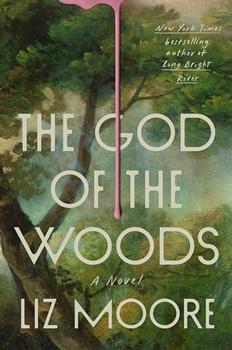Summary | Excerpt | Reviews | Readalikes | Genres & Themes | Author Bio

James Hutton and the Discovery of Earth's Antiquity
by Jack Repcheck
The other skeptic was Sir James Hall. A thin blade of a man,
with a pleasant face and small features, the twenty-seven-year-old had
inherited a substantial fortune while still a teenager. The coastal estate
that served as the home base for this excursion was part of that
inheritance. Hall also supplied the boat and the additional hands to help
sail it. Though still quite young, Sir James was already an accomplished
scientist. His grand-uncle and guardian, Sir John Pringle, was president of
the Royal Society, the most esteemed scientific body in the world and the
former intellectual home of Isaac Newton. Hall was particularly fascinated
by chemistry and had recently become acquainted with the great Antoine
Lavoisier in Paris. Visiting the continent when Hutton gave his
controversial lectures, Hall nonetheless read a printed thirty-page
abstract of the talks that had found its way to him. His reaction mirrored
that of the audience: He rejected it.
To call Playfair and Hall skeptics is a bit misleading. By
June 1788, after countless face-to-face discussions with Hutton, they had
slowly been persuaded that the doctor's theory was plausible. But at the
time of Hutton's explosive lectures, the announcement that the earth was
ancient was startling. It would be akin to being told today that the sun
is not really the source of the earth's heat and light, or that there
actually is complex life on the moon. Though other natural philosophers
had intimated that the earth was not as young as six millennia, and one
famous French scientist had recently argued that the earth was 75,000
years old, no one had ever gone as far as Hutton—or been so direct.
Also, a rigorous theory of the earth's history and
workings that most scientists found compelling already existed. This
theory was promulgated in the 1770s by a talented German mineralogist
named Abraham Gottlob Werner, who was a professor at a renowned German
university. Werner argued that a "universal ocean" had once blanketed
the earth, creating all the formations that now existed. This was
acceptable to the established religions because the universal ocean
harkened back either to Noah's Flood or to Creation itself and the very
first passages in the Book of Genesis: "And the spirit of God moved upon
the face of the waters," and "God said, Let the waters under the
heaven be gathered together unto one place, and let the dry land appear;
and it was so." Werner's theory also appealed to the scientific
community because it seemed to account for all the visible features on the
earth.
Hutton's general theory of the earth's history was the
opposite of Werner's, as different as heaven from hell. Werner believed
that the mountains, deserts, and farmlands had precipitated out of the
receding water of the universal ocean; that is, as the ocean slowly
evaporated or was drawn into the earth, the land on which humans now lived
formed and was revealed. This process had happened only once. Hutton, in
contrast, saw new land springing from below the already existing oceans,
pushed up by the caldron of extreme heat found within the earth. And he
saw it happening over and over, the earth following a constant pattern of
erosion followed by new land rising up from below the seas—the planet an
efficient land-regenerating machine. Hutton reasoned that this cycle had
occurred at least three times during geologic history.
For Hutton there was no need to call upon unseen and
unknowable catastrophes from the past, such as the Deluge or the universal
ocean, to explain geologic formations; they were all understandable
through the knowledge of processes still occurring. The inexorable forces
of wind and rain, tides and waves, volcanoes and earthquakes, which the
earth still experiences every day, formed the world we inhabit. All that
was required, as Hutton stated, was "immense time."
Excerpted from The Man Who Found Time by Jack Repcheck. Copyrighted by Jack Repcheck 2003, all rights reserved. No part of this book may be reproduced without written permission from the publisher, Perseus Publishing.




Your guide toexceptional books
BookBrowse seeks out and recommends the best in contemporary fiction and nonfiction—books that not only engage and entertain but also deepen our understanding of ourselves and the world around us.